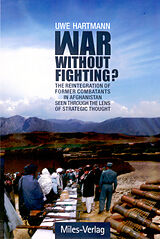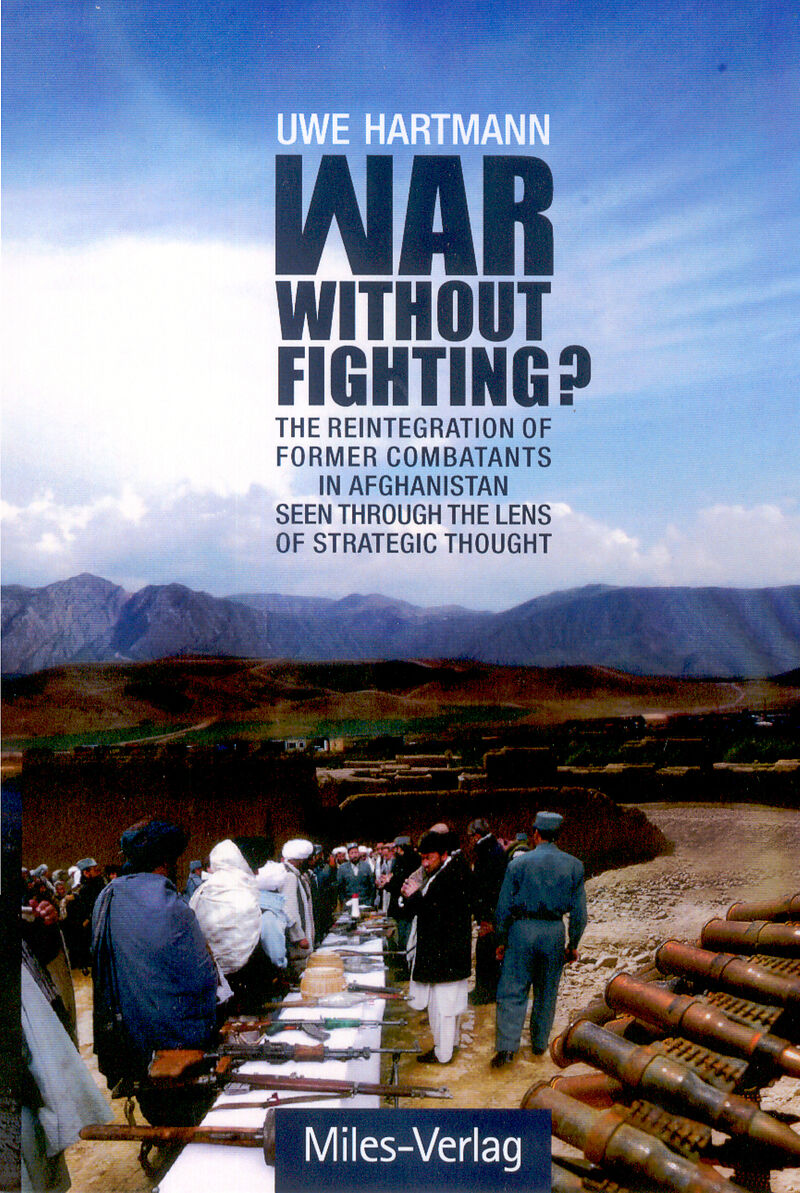War without Fighting?
Einband:
Kartonierter Einband
EAN:
9783937885865
Untertitel:
The Reintegration of former Combatants in Afghanistan seen through the lens of strategic Thought
Genre:
Politische Bildung & Wissenschaft
Autor:
Uwe Hartmann
Herausgeber:
Miles-Verlag
Anzahl Seiten:
144
Erscheinungsdatum:
11.06.2014
ISBN:
978-3-937885-86-5
Referencing DDR experiences from other countries and DDR programs in Afghanistan, this book examines the lessons learned that have been incorporated in the APRP. As in other countries, Afghanistan will be facing the challenges of reintegration for many years to come. This requires not only the longterm financial commitment of the International Community (IC), but also the consistent political will of the Afghan government, the continuous improvement of administrative capacities, constant support provided by the security institutions, and the enduring commitment of the people to live together with former adversaries. This book continues with the examination of the strategic implications of reintegration in wartime. What intellectual concepts and tools do theories of war and strategy contain to better under-stand reintegration? The primacy of policies, war as a paradoxical trinity, peace as the ultimate objective of war, the impact of culture on strategies, and the concept of limited war are propositions of stra-tegic thought that critically enlighten the phenomenon of reintegra-tion in times of war. It becomes evident that reintegration should not be seen as the sole realm of counterinsurgency (COIN). By contrast, reintegration must be regarded as an essential, even supreme element in the development of strategies. Reintegration may not be suitable for all future conflicts. Nevertheless, the assessment of the feasibility, acceptability, and suit-ability of reintegration should not start when a conflict fought with military means is close to termination but rather as soon as possible after the initial outbreak of hostilities. If reintegration is launched in the midst of a conflict, all strategic leaders must be aware that this will likely have a significant impact on their strategies. Ends, ways and means must be adjusted to better support the political purposes of reintegration programs. Reintegration must also be considered in the restructuring of headquarters and forces, and of the professional education system.
Autorentext
Dr. phil, Oberst i.G., Visiting Lecturer an der Naval Postgraduate School in Monterey/CA.
Klappentext
During his inauguration speech on November 19, 2009, the then Afghan President Karsai announced to welcome and to provide necessary help to all disenchanted compatriots who are willing to return to their homes, live peacefully and accept the Constitution. We invite dissatisfied compatriots, who are not directly linked to international terrorism, to return to their homeland. This bold political initiative is the foundation for the Afghan Peace and Reconciliation Program (APRP). Referencing DDR experiences from other countries and DDR programs in Afghanistan, the author examines the lessons learned that have been incorporated in the APRP. As in other countries, Afghanistan will be facing the challenges of reintegration for many years to come. This book continues with the examination of the strategic implications of reintegration in wartime. It becomes evident that reintegration should not be seen as the sole realm of counterinsurgency (COIN). By contrast, reintegration must be regarded as an essential, even supreme element in the development of political and military strategies. Reintegration may not be suitable for all future conflicts. Nevertheless, the assessment of the feasibility, acceptability, and suitability of reintegration should not start when a conflict fought with military means is close to termination but rather as soon as possible after the initial outbreak of hostilities. If reintegration is launched in the midst of a conflict, all strategic leaders must be aware that this will likely have significant impact on their strategies. Finally, strategists should be aware that reintegration cannot replace the use or threat of violence. Reintegration is not a panacea for subduing the enemy without fighting, a concept which Sun Tzu defined as the acme of skill. The capability of the host country and the intervention forces to fight successfully and the perceptions of the people are often decisive in the insurgent s willingness to reintegrate. Consequently, the utility of force should shape the support of reintegration, wherever possible and to the greatest extent possible.

Leider konnten wir für diesen Artikel keine Preise ermitteln ...
billigbuch.ch sucht jetzt für Sie die besten Angebote ...
Die aktuellen Verkaufspreise von 5 Onlineshops werden in Realtime abgefragt.
Sie können das gewünschte Produkt anschliessend direkt beim Anbieter Ihrer Wahl bestellen.
Loading...
Die aktuellen Verkaufspreise von 5 Onlineshops werden in Realtime abgefragt.
Sie können das gewünschte Produkt anschliessend direkt beim Anbieter Ihrer Wahl bestellen.
| # | Onlineshop | Preis CHF | Versand CHF | Total CHF | ||
|---|---|---|---|---|---|---|
| 1 | Seller | 0.00 | 0.00 | 0.00 |
